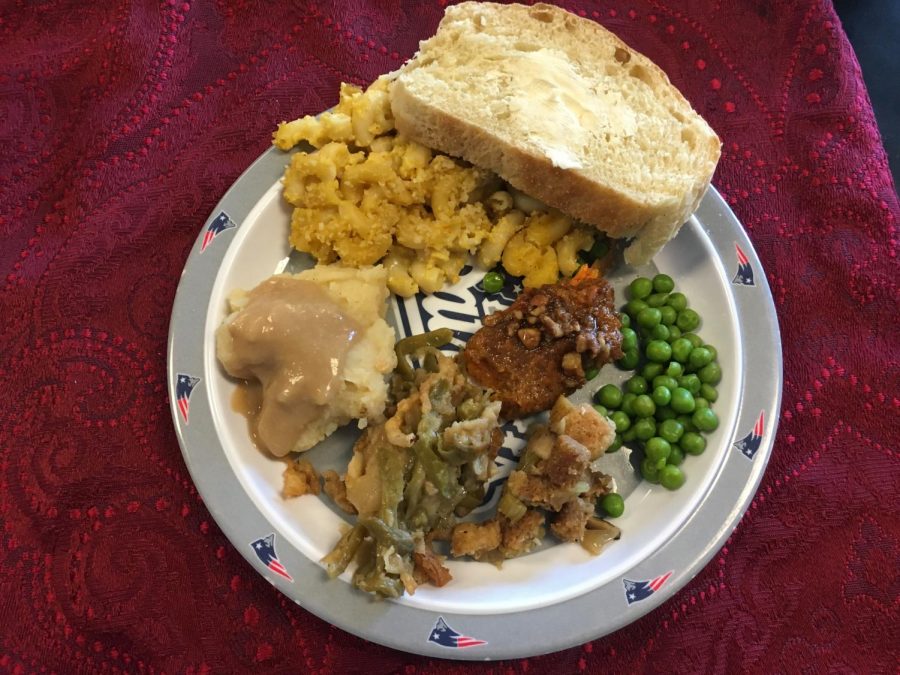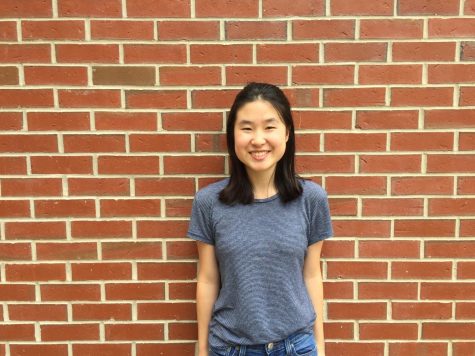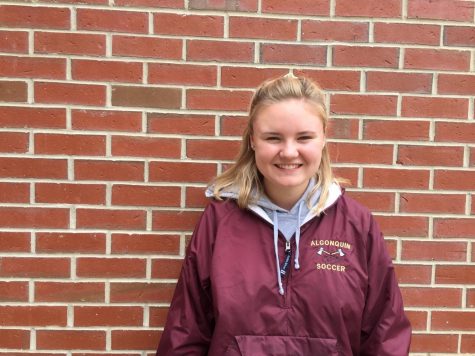AP Environmental class celebrates vegan Thanksgiving
Senior Paige Morse prepared vegan mashed potatoes for her AP Environmental class in celebration of Thanksgiving.
November 17, 2017
Vegan Thanksgiving dishes covered an entire lab table in AP Environmental Science class on Friday. From mashed potatoes to mac and cheese, students loaded plates (that is, the reusable plates they brought to school) with vegan food and learned more about the plant-based diet.
Since she started teaching AP Environmental Science, science teacher Christina Connolly has hosted a vegan Thanksgiving celebration every year, allowing students to create vegan dishes to share with the class for a plant-based meal. Connolly’s aim is to expose students to a more environmentally-friendly vegan diet.
“I kept talking about reducing your eco footprint and how eating less meat has less of an impact,” Connolly said. “But a lot of students would never consider it. They think meat, eggs and milk are all things we should be eating and food can’t taste good if they don’t have those things in it. So I thought, let’s do Thanksgiving without killing a turkey, without using eggs and milk and see if it tastes good. And it does. It’s great.”
“It really brought the class together and showed how vegan dishes are just as delicious as the non-vegan dishes that people usually consume during Thanksgiving,” senior Rachael Shek said. “We had a ton of main courses, a table of deserts and a triple period to enjoy it all.”
Connolly hopes that through recreating the taste of traditional Thanksgiving foods in vegan dishes, students will realize that they’re not sacrificing much by eating less meat.
“I think they realize being vegan or vegetarian can still taste good,” Connolly said. “I don’t know if it necessarily changes Thanksgiving because a lot of people focus on the turkey. I think they realize there’s so many other good items. Maybe they’re not going to become vegan or even vegetarian, but a limited meat diet can still taste good.”
A vegetarian since last spring, senior and environmental student Jessica Yin saw how being a vegan during Thanksgiving can be difficult.
“If your family isn’t embracing a vegan or vegetarian diet it’s definitely hard, especially how ubiquitous milk and butter is in baked goods,” Yin said.
While vegetarian and vegan recipes are prevalent today, maintaining the diet can still be hard in social settings like Thanksgiving, according to Shek, a vegetarian.
“You just have to put the effort into finding recipes that don’t require animal products,” Shek said. “However, I think the hard part is when the people you celebrate with might not have the same diet preferences as you so you might not be able to eat everything.”
Even with these periodic hardships, vegetarians like Yin and Shek believe that eating vegan can be delicious but most importantly, it’s more sustainable for the environment.
According to Connolly, meat consumption depletes resources, while harvesting crops has less of an effect.
“Meat production uses a whole lot of water- our fresh drinking water, which we’re running low on,” Connolly said. “Also, [raising crops] uses less fossil fuels. So you have much less of an environmental impact. In fact, some argue that if we are going to save the world and not have all this global climate change happening, we really all nead to not eat meat because it has such an impact on the environment that we don’t realize.”
The American meat industry raises concerns for vegetarians like Yin, who restricts meat from her diet out of care for her at-risk home: Earth.
“Especially in America, our level of meat consumption is totally disproportionate from the rest of the world,” Yin said. “And it’s a huge contributor to our carbon emissions, which is also wildly disproportionate to the rest of the world because we are so meat-based and the amount of carbon and energy it takes to raise a cow versus grow a carrot is a big difference. We would be best both environmentally and health-wise to switch to a more plant-based diet. Dairy is just as bad as eating meat. The way they milk these cows is mechanized, industrial and abusive to animals.”











